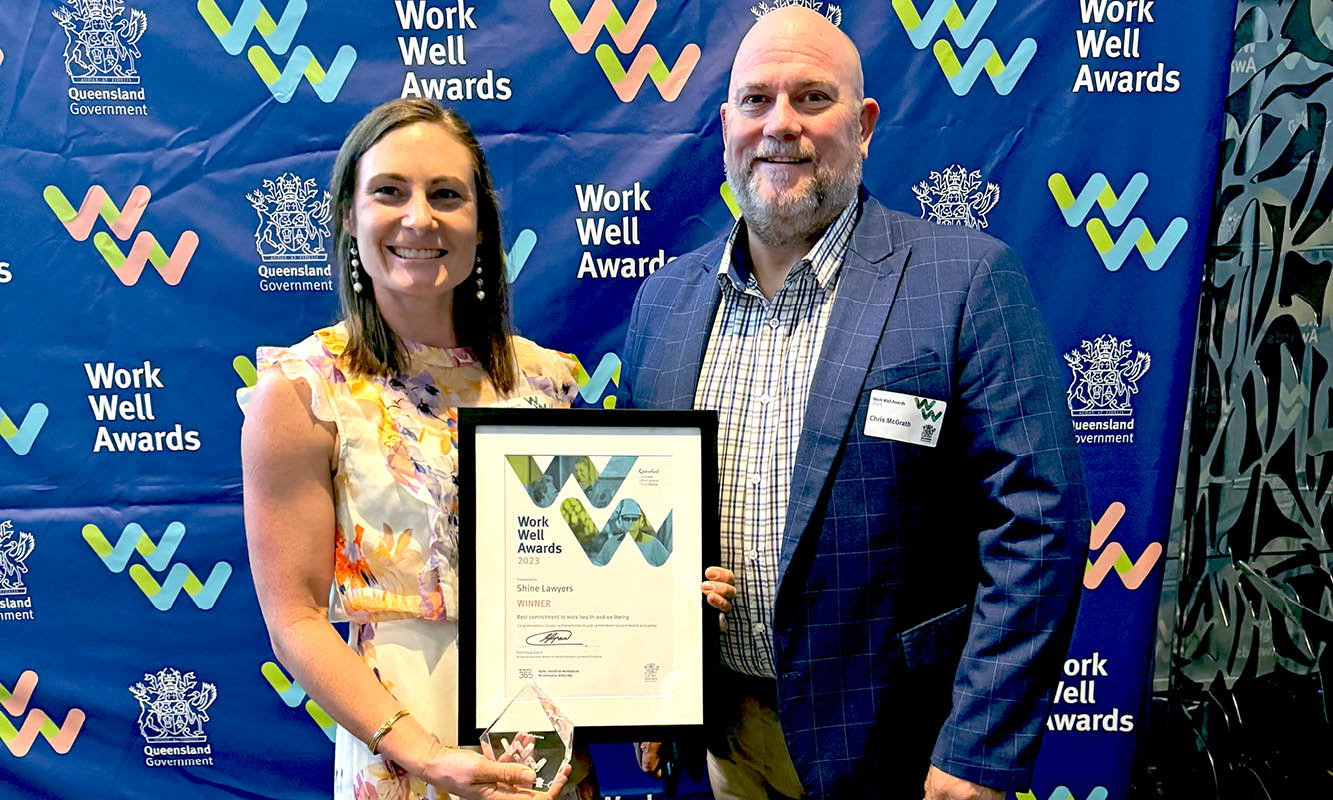Building positive and sustainable habits is the secret to achieving your goals. We often fall for the misconception that making a big change in your life will require grand gestures and massive behaviour modifications implemented overnight. But it is persistence, determination and thousands of small repeated actions that will get you there. Read on to find out more!
We all have things that we desperately want to achieve in life. Whether it be having more time for friends and family, living a healthier lifestyle, deepening our expertise in our chosen field or career specialisation, or becoming financially comfortable… The list goes on and on. But all this work on goal formulation still doesn’t necessarily mean we are any more likely to achieve them.
Why? The results have much more to do with the systems we put in place than the desired outcomes. This is the difference between outcome and process-driven goals. Think about process-driven goals as the set of actions you need to perform or the behaviour patterns that achieve your intentions. In short—it is about the habits you purposefully create.
In essence, a habit is automated or routinised behaviour which is repeated regularly and doesn’t rely on conscious input or willpower. This is important because we tend to overestimate our ability to exercise self-control when it comes to goal achievement. Often this leads to the abandonment of our goals and the failure to accomplish what we were once convinced and highly motivated to do. Willpower can be a great catalyst to get things started (including new habits), but it will inevitably falter when things get difficult. Whether it is competing priorities, other challenges, or we’re exhausted and overwhelmed—this is where the power of habits (a reliable, continuous process) can kick in to carry us through.
Further issues of outcome-based goals
They are endpoint-focussed and ignore what’s beyond.
You won the big contract, you ran the marathon, or you have finally paid off the debt. What’s next? Once a goal has been ticked off the list, there is risk to revert back to previous behaviour patterns that caused us a problem in the first place. Perhaps it’s the very issue that prompted to you to set the goal?
If your focus on business development wanes, if you get back to spending your evenings on the sofa with a tub of ice cream instead of doing training runs, or if you start over-spending again, you will fall into a similar pattern. Just having achieved the goal won’t make a long-term difference to your life if you are stuck in an endless game of yo-yo.
They continually defer your happiness (or self-confidence or satisfaction) to a point in the future.
“Once I’ll make it to Partner, I can finally relax” or, “I’ll be happy once I’ve lost 15 kilograms”. Chances are you have heard versions of these statements before, or you’ve thought them yourself. This problematic way of thinking causes us to perpetually chase a moving goalpost. As soon as you have reached your desired state, new needs and pain points appear, and you suddenly compare yourself with the next group of people who seem just that little bit more successful than you. And with that, you defer your happiness to the next milestone.
So what can you do instead? How can you design the systems in your life to remove the over-reliance on willpower, build a scalable and sustainable path ahead, and create positive experiences such as increased wellbeing, higher self-esteem and the sense of living a more intentional life?
How to apply process-oriented goals
Conduct an audit of your current habits.
Wendy Wood, Professor of Psychology and Business at the University of Southern California, has found in her research that about 43% of our daily behaviour is automatic and habitualised1. This is a lot of activity that happens without much conscious input! To get a better insight into particular behaviours you have (purposefully or accidentally) trained your mind to action for you, make a detailed list of your daily habits.
This may look like the following:
- Wake up
- turn off alarm
- check phone
- have a shower
- decide what to wear today
- have an extra-strong coffee.
It pays off to be as granular as you can, then score each habit.2 For example, is this behaviour helpful in achieving your long-term goals? Does it contribute to your wellbeing? You may realise that checking your phone just after waking up floods your mind with external stimuli right away and that some quiet time to set your intentions would prepare you for a better day. Likewise, the double-shot coffee before food may make your nervous and aggravate your stomach. Potentially, setting aside your clothes in the evening would save you decision-making time in the morning. It is important to point out that there is no right or wrong, simply assess your actions to determine if they are beneficial to you.
Decide what new habits you would like to create.
As discussed in a previous post about successful goal setting, the key is to make them as small and easy to accomplish as possible. How can you make new positive intentions “too small to fail”? For example, if you would like to make regular journaling part of your life, start by committing to writing just one sentence every day. If a healthier diet is something that is important to you, make one piece of fruit a non–negotiable ingredient of your daily intake, or commit to swapping one soft drink with a glass of water or sugar-free tea. Small investments like these may seem to make little difference on any given day, but the impact they deliver over the months and years can be enormous. Don’t forget to track the daily habits you want to focus on – we all know that “what gets measured gets done”. Each measurement provides immediate feedback on your progress and signals that you are on the right track. Habit formation is a marathon, not a sprint, which makes it important to recognise and celebrate small wins along the way.
Decide which habits you need to break.
Habits tend to form spontaneously, without a lot of conscious effort. Behaviour that is easy to perform and offers instant gratification can become automated easily and may prove difficult to get rid of again–think about that hard-to-shake afternoon craving for a sugar-loaded treat, the urge to check your phone every time you get bored or stressed, or the feeling that “something is missing” if your dinner is not accompanied by a bottle of wine. Breaking such habits can be challenging, especially when we are trying to rely on willpower alone again.
Considerations for breaking habits
Modifying your environment.
Outsmart yourself by tweaking your surroundings and the triggers they present you with. Reduce temptations where possible, for example, replace unhealthy food choices around you with healthier ones, remove your mobile phone and other devices out of your bedroom before going to sleep, or immediately transfer a certain amount of your salary into your savings account so you cannot access it as easily.
Making positive choices easy and attractive
Make “doing the right thing” a positive experience, or find an appealing substitute for the behaviour or substance you want to cut out. For example, experiment with non-alcoholic beverages until you find something that you really like, then ensure you have access to it in situations where you would usually make choices you want to modify. Or if you want to create a habit of running to stay fit, you may want to invest in comfy trainers, select a scenic route and reward yourself with watching your favourite TV show afterwards.
Surround yourself with people who already behave the way you want to.
Other people send us powerful cues about the kind of behaviours that are expected, rewarded or normalised within their social setting. We soak up the practices and qualities of those around us. So if you want to build particular habits (for example, live a healthier lifestyle, work in a way that is compatible with a rich personal life), join a social group or a workplace where the desired behaviour is already the established norm. Finding your tribe – the friends and colleges who fully accept who you are and who support, encourage and inspire you on your journey–will improve both your wellbeing and your ability to achieve goals that are inherently meaningful to you.
If you would like to learn more, don’t hesitate to reach out to the QLS Solicitor Support service on ethics@qls.com.au or p. 3842 5843 to speak to someone in a judgement-free and supportive environment.
1 For more information, see an interview with Prof Wood here: https://behavioralscientist.org/good-habits-bad-habits-a-conversation-with-wendy-wood/, or refer to her book “Good Habits, Bad Habits: The Science of Making Positive Changes That Stick”
2 See James Clear’s blogpost “The Habits Scorecard: Use This Simple Exercise to Discover Which Habits You Should Change” for more information













Share this article